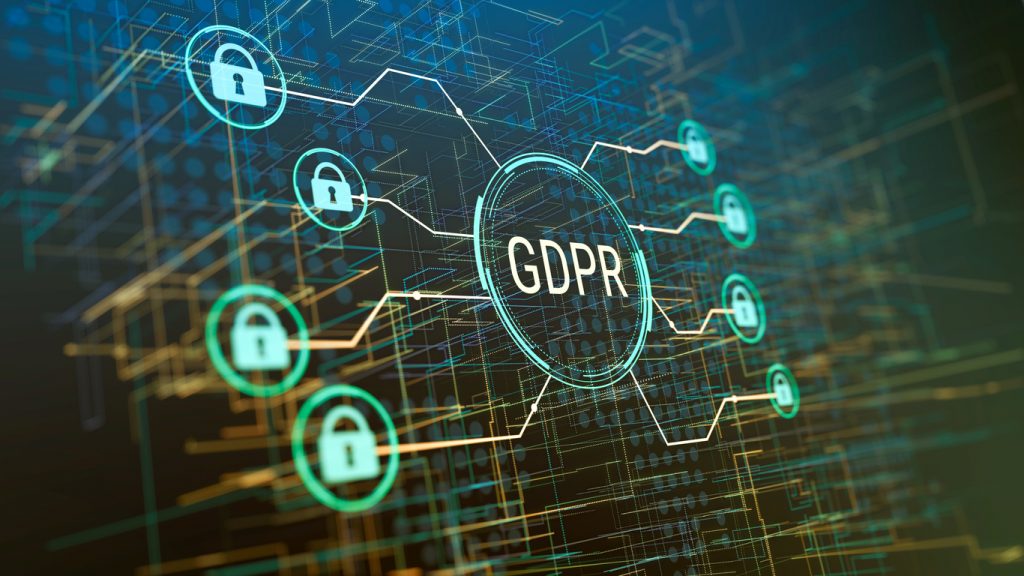With 2018 behind us, it feels like so long ago that some of the year’s biggest stories have gone by and faded into obscurity—though some have had such a piercing impact that we still feel the rippling effect to this day. As we begin the new year, it’s time to look back over some of the biggest leadership news of the past, with each month’s highlights:
Let’s start with January. At the very beginning of the year, the first in four trading days treated Vice Chairman Yang Huiyan kindly. Due to a share surge at property development company Country Garden Holdings Co. on the 5th, her wealth soared by $2.1 billion, bringing her total fortune to a whopping $25.6 billion. The shares then rose by a further 6.9% in Hong Kong trading, taking its total gain to 16% and her wealth to $28.6 billion. At only 36 years of age at the time, Huiyan can boast that not only did she officially become China’s richest woman, but the nation’s youngest billionaire—all in a matter of 4 days.
This month had less favourable plans for Carillion: the 15th marked the multinational facilities management and construction services company’s unforeseen collapse, putting thousands of jobs at risk after being forced to go into liquidation with the announcement of its phenomenal dept. On its downfall, Carillion chairman Philip Green said: “This is a very sad day for Carillion, for our colleagues, suppliers and customers that we have been proud to serve over many years.” With a deeper look into its finances, Carillion appears to have fallen due to its overreaching—taking on too many risky and subsequently loss-making contracts. Another reason behind its demise is the worth of shares, which never recovered after plummeting in July 2017 when an initial profit warning was announced, and the high salaries and bonuses received by its various CEOs over the years compared to its earnings.
February made history when Elon Musk fired one of his cars into space. The Falcon Heavy, one of the world’s most powerful rockets, was shot into space on February 6th with the Tesla CEO’s very own red Tesla Roadster inside serving as a dummy payload. Musk had speculated that the car could drift in space for millions or billions of years. Remarking on the video feed of the car floating in space, Musk said: “You can tell it’s real because it looks so fake. We’d have way better CGI if it was fake.” Since then, the car has passed the orbit of Mars, and continues on its voyage among the stars.
That month, some of the biggest and best—Amazon, JPMorgan and Berkshire Hathaway—announced their venture into a new independent healthcare business that benefits their US employees and their families. Jeff Bezos, Jamie Dimon and Warren Buffett joined together to create a non-profit organisation with the ambition to reduce the cost of healthcare and improve the quality of its service for the employees of their respective businesses. The announcement led to excitement over what changes and improvements they could make to the industry, with others more pessimistic about what could be achieved. Amazon’s inclusion, especially, caused the stock value of various healthcare providers to drop across the US including UnitedHealth down by 6.6%, CVS Health down by 5.5% and Walgreens Boots down by 3.6%. Later in the year, Atul Gawande, a Harvard surgeon, was announced as the organisation’s new CEO.

Mid-March had the breaking story of the Cambridge Analytica scandal, wherein the data analyst firm was found to have extracted data from 50 million Facebook accounts which may have aided in Donald Trump’s election campaign. When news of this first broke, Facebook shares fell, as well as CEO Mark Zuckerberg’s net worth by around $5 billion. Cambridge Analytica CEO, Alexander Nix, was caught on camera speaking to an undercover Channel 4 reporter where he admitted to using such tactics as using bribes and sex workers to ensnare politicians into a compromising position. At one point in the exchange, he said: “We’ll offer a large amount of money to the candidate, to finance his campaign in exchange for land for instance, we’ll have the whole thing recorded, we’ll blank out the face of our guy and we post it on the Internet.” Nix was then suspended from his position, and this story thrust data security and privacy into the spotlight as a focal point of the year overall.
A month later in April, Zuckerberg then went on to face congress with over 10 hours of questioning. Representative Greg Walden, Republican of Oregon said: “While Facebook has certainly grown, I worry it has not matured. I think it is time to ask whether Facebook may have moved too fast and broken too many things.” Despite what many believed would be a heated questioning with Zuckerberg in the hotseat, Facebook ended up gaining $21 billion in value, with shares up by 4.5% as Zuckerberg handled the situation better than expected. This helped, at the time, to mend the damage that Facebook faced when news of the breach first broke. Zuckerberg’s success has been attributed to congress’ arbitrary questions, with Axios stating: “Zuckerberg was well prepared, but he also benefited from redundant questioning that rarely included smart follow-ups.” The hearings were said to ultimately have helped to pave the way for new rules surrounding digital privacy in the future.
On the other hand, Cambridge Analytica came out of the ordeal too worse for wear, and announced its bankruptcy in May, explaining that the scandal had “driven away virtually all of the company’s customers and suppliers.” Later on the 25th, the momentous implementation of data protection regulation GDPR began in the EU. Described as the ‘most important change in data privacy regulation in 20 years,’ the aim was to bring more control to individuals over their personal data, and companies around the world scrambled to comply in time—lest they receive a fine, or obstructions from their EU-based audience. GDPR remains a hot topic around the world, even after the time that’s passed since it was first introduced.

June saw the worst for Elizabeth Holmes, Founder and former CEO of Theranos, as she faced criminal charges after it was announced that she would be stepping down as CEO of the technology company. Theranos remains infamous for its promise to revolutionise blood-testing with unique technology, and how it defrauded its patients, investors, and doctors alike. Ms. Holmes founded Theranos when she was 19, in 2003. She claimed that the technology used only at Theranos could diagnose cancer and cholesterol with only a few drops of blood. In its early days, it managed to secure over $700 million from investors, and found itself valued at around $9 billion based on its various promises. After news of the company’s fraud came to light, Holmes’ net worth was reduced to $0, and her name has become synonymous with the scandal she and her company created.
Jeff Bezos had a far better month in comparison in July, when his net worth reached a record high of $90 billion, making him the richest person in modern history. It’s risen further still, to a staggering $135 billion as of January 2019. That month, Amazon’s market value topped at $890 billion, and shares hit an all-time high of $1,842. Bezos has yet to become wealthier than the all-time record-holder, John D. Rockefeller, an American oil industry business magnate that passed away in the ‘30s—but if anyone is going to reclaim the title, Bezos seems on-track to achieve it.
Sadly, August was hallmarked by Indra Nooyi, then-CEO of PepsiCo, announcing that she would be stepping down from the position to be replaced by current President of the company, Ramon Laguarta. Since taking on the role in 2006, PepsiCo has seen a 78% rise in shares during her tenure, and revenue raised from $35 billion to $63.5 billion. Additionally, Nooyi spearheaded the transition for PepsiCo’s focus on healthier options and becoming a more environmentally aware company. In a statement, Nooyi said: “Growing up in India, I never imagined I’d have the opportunity to lead such an extraordinary company. PepsiCo today is in a strong position for continued growth with its brightest days still ahead.”

That month, Musk revealed via a tweet that he would be taking the company private “at $420. Funding secured.” An additional tweet explained: “Investor support is confirmed. Only reason why this is not certain is that it’s contingent on a shareholder vote.” The Securities and Exchange Commission then subpoenaed Tesla, bringing stock in the company down by 3% as a formal investigation began, leading to a settlement in September when Musk faced securities fraud charges. He paid millions in penalties, and agreed to step down as Chairman of Tesla, where he remains the CEO.
After facing an IT meltdown earlier in the year, October revealed that retail and commercial bank TSB had seen a loss of more than 20,000 as a result of the ordeal. It also ended with the departure of Paul Pester, the bank’s CEO, who left with £1.7 million in pay and bonuses. The situation began when TSB announced, in late April, that it would be updating its online banking system. This update involved the movement of some 5.4 million customer accounts and turned out to be a far greater task than the bank anticipated. Millions of customers subsequently reported errors, glitches, being locked out of their accounts, loss of credit when they did manage to access their funds and inevitably, reports of data leaks as well.
Nissan Chairman Carlos Ghosn was arrested for financial misconduct in November, having been accused of under-reporting his pay package by 5bn yen (£34.5m) and personal use of company assets. He was paid 735m yen (£5.1m) by the company in the latest financial year. Hiroto Saikawa, Nissan Chief Executive, said: “I feel despair, indignation and resentment. As the details are disclosed, I believe that people will feel the same way as I feel today.” He also expressed that oversight was difficult due to the amount of power that Ghosn had, adding: “The problem of governance was significant. Looking back, after 2005 when he became CEO of both Renault and Nissan, we did not really discuss the implications.” Shares in Nissan fell by 5.5% upon the news, and Mitsubishi Motors went down by 6.9%.
And finally, we have the more recent December month: Mike Ashley, CEO of Sports Direct, proposed an additional tax to be placed on online retailers in order to help revive the ever-suffering status of the high street. A rise in rents and the ongoing shift from brick and mortar to online shopping throughout the year had led to numerous store closures and failing businesses. He said: “We have to realise the High Street won't make 2030 - it's not going to be there unless you do something really radical and grab the bulls by the horns. It won't be there.”
Also in that month, Tesla announced that it was suing former employee, Martin Tripp, for more than $167 million in damages after Musk alluded to him as being a “saboteur” of the company. Facebook faced further data usage accusations, when a parliament committee published a cache of documents online, showing that Facebook made it “as hard as possible” for its users to be aware of privacy changes relating to its Android App—ending a tumultuous year for both companies.
Facing a brand-new year is never easy, especially as we face what could shape our perspectives and the unforeseen. What will happen moving forward? Which businesses and leaders will make headlines this year? Every month holds its own story, and we can’t wait to find out…










